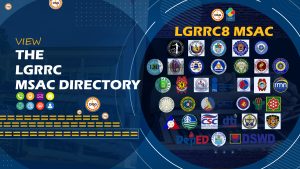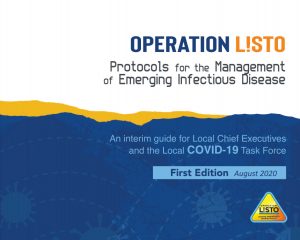On July 15, 2019, the Department of Health (DOH) raised a National Dengue Alert due to the rapidly increasing number of cases observed in several regions of the country. The DOH disclosed that among those which have exceeded the epidemic threshold are Region IV-B (MIMAROPA), VI (Western Visayas), VII (Central Visayas) and X (Northern Mindanao). The Secretary of Health ordered that clustering of cases must be done by the respective DOH regional offices and shall serve as basis for the declaration of a localized epidemic at the barangay level.
Dengue is a viral disease with no known vaccine or specific antibiotics. Effective surveillance can also help in reducing the number of cases and deaths if areas with clustering of cases are identified early.’
On August 6,2019, the Health Secretary issued the National Dengue Epidemic Declaration, citing that from January 01 to July 20, 2019, the total number of recorded dengue cases has reached 146,062, which is 98% higher compared to the 73,818 cases recorded within the same period last year, with 14 out of 17 regions registering higher dengue cases compared to the same period in 2018.
Based on the DOH Dengue Surveillance Report, Region VI (Western Visayas) had the most number of cases at 23,330, followed by Region IV-A (CALABARZON) with 16,515; Region IX (Western Mindanao) with 12,317; Region X (Northern Mindanao) with 11,455, and Region XII (SOCCSKSARGEN) with 11,083.
As of July 20, 2019, based on the DOH Weekly Surveillance report for Morbidity Week No. 29, the epidemic threshold has been exceeded in Regions IV-A, IV-B, V, VI, VIII, IX and X. Also, Regions I, VII and the BARMM have exceeded the alert level threshold. Additionally, 10,502 cases have been recorded for Morbidity Week No. 29, which is 71% higher than the 6,128 cases recorded within the same period in 2018.
The number of recorded cases continues to increase, according to the DOH
surveillance reports.
The DOH thus calls on the public to keep their surroundings clean and to destroy all possible mosquito breeding grounds in their communities, and to implement the “Enhanced 4S,” which stands for (1) search and destroy breeding sites; (2) seek early consultation; (3) self-protect; and (4) say Yes to fogging only In hotspot areas where case increase is registered for two consecutive weeks.
























































